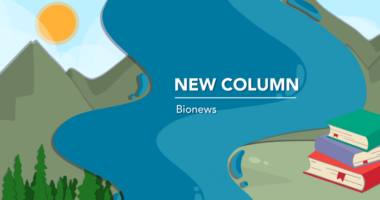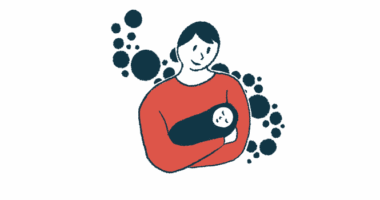
Pompe disease support groups and resources
Joining a support group can be an invaluable resource when navigating life with Pompe disease, a rare genetic disorder that primarily affects muscle cells.
Pompe support groups provide the opportunity to connect with others in a similar situation. They can provide emotional support and friendship, offer practical advice about disease-related difficulties, and highlight useful resources.
Pompe disease is caused by a toxic buildup of a sugar molecule called glycogen inside the body’s cells. There are three disease types that vary by age of onset: classic infantile-onset, nonclassic infantile-onset, and late-onset. While life expectancy is unfortunately short for those with the infantile-onset form of the disease, people living with late-onset Pompe are affected by a slower progression of symptoms.
Healthcare providers are often the best place to start when seeking a local support group, while there are also a number of national and international Pompe associations and organizations.
Support groups
Support groups are available both in-person and online for young people and adults with Pompe disease, as well as their caregivers. These groups provide an opportunity for people to share advice and practical tips about the challenges posed by living with Pompe, and to be a part of a community that understands each other’s journey.
When a person is first diagnosed with Pompe, it can feel overwhelming. In the U.S., the Acid Maltase Deficiency Association, the Muscular Dystrophy Association, and the United Pompe Foundation can connect people living with Pompe and their families to support groups that can help them voice their feelings and come to terms with their diagnosis. Meanwhile, the Association for Glycogen Storage Disease supports parents of children with Pompe.
Outside of the U.S., the International Pompe Association maintains a list of IPA members and contacts, many of which offer support groups across the globe. These include the New Zealand Pompe Network, the Canadian Association of Pompe, the Australian Pompe Association, and the Pompe Support Network in the U.K.
Online support
Social media platforms such as Facebook host a number of Pompe community groups, including Pompe Friends and Pompe Strong, both of which are public, along with the Pompe Warrior Foundation. There are also private groups such as Cure Pompe Disease.
Other online Facebook groups include:
- Australian Pompe Association
- Glycogen Storage Disease
- GSDNet
- Metabolic Support U.K.
- Pompe Bulletin
- Pompe Meetings Upcoming
- Pompe Support Network.
Information for people with Pompe
Pompe Disease News is a source of the latest news and research into the disease, as well as a resource for living with Pompe. You can also find information on diet, exercise, adaptive equipment, and up-to-date treatment news, plus online support on its Facebook page.
More broadly, there are the following resources for people living in the U.S.:
- Disability.gov has information and resources to help individuals with disabilities lead full lives as independently as possible.
- The Centers for Independent Living are nonprofit agencies offering services aimed at maximizing the independence of people with disabilities.
- The Patient Advocate Foundation provides professional case management services to those facing chronic and debilitating conditions.
Financial resources
People living with Pompe disease and their families can face financial strain as they pay for medical bills, including for critical care.
A 2019 study showed the average annual cost of supportive therapy (excluding treatment) for a person with late-onset Pompe was $28,489, with nursing home admissions accounting for 19% of annual medical costs.
The following organizations may be able to offer financial help:
- The Assistance Fund is a charitable foundation that helps Pompe patients and families facing high medical out-of-pocket costs.
- The Pan Foundation offers financial assistance to help people with serious illnesses afford their out-of-pocket treatment costs and improve their quality of life.
- The Patient Advocate Foundation offers copay financial relief in the U.S.
- State Pharmacy Assistance Programs are available in many U.S. states to help eligible individuals pay for prescription medications.
- Amicus Therapeutics, the developer of Pombiliti + Opfolda, has launched Amicus Assist to help people in the U.S. navigate insurance coverage and the prescription process, as well as assisting with financial solutions.
- Sanofi, the pharmaceutical company behind Nexviazyme and Lumizyme, offers a Care Connect service to help Americans with financial assistance on eligible, drug-related expenses, including insurance and deductibles.
Educational support
Rare disease forums and conferences bring together people living with Pompe disease, healthcare providers, researchers, and patient advocacy groups.
International Pompe Day is held annually April 15, with activities happening around the world and a World Symposium on lysosomal diseases, including Pompe, is held in the U.S.
The Acid Maltase Deficiency Association offers informational webinars aimed at the public, including recordings of previously held events, as does the Muscular Dystrophy Association.
Medical information
Pompe disease patient education starts with a person’s healthcare team, and can include information from international healthcare organizations and associations specializing in the condition.
Pompe Disease News offers information on the disease, including diagnosis, causes, and treatment, as well as first-person perspectives on living with the disease.
It is important to always seek the advice of a healthcare professional first, as online content is not a substitute for professional medical information.
Pompe Disease News is strictly a news and information website about the disease. It does not provide medical advice, diagnosis, or treatment. This content is not intended to be a substitute for professional medical advice, diagnosis, or treatment. Always seek the advice of your physician or other qualified health provider with any questions you may have regarding a medical condition. Never disregard professional medical advice or delay in seeking it because of something you have read on this website.
 Fact-checked by
Fact-checked by 


